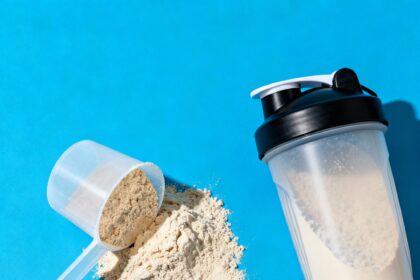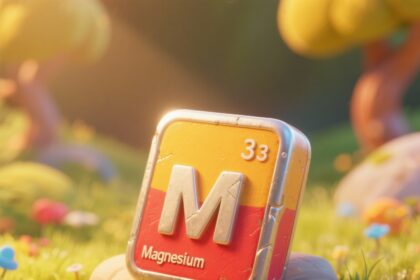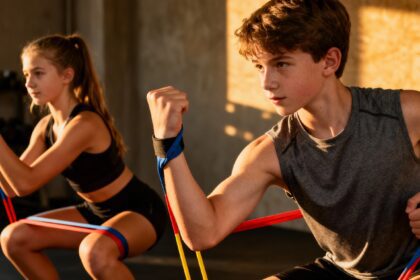By Jonathan Woods
There are no shortcuts to success for an athlete. It takes long hours of sport-specific training to become an accomplished elite athlete. However, this training alone is insufficient for an athlete to be successful at the top of their sport. Two other key components are necessary. Athletes need regular strength training and to develop mental toughness.
Strength training is critical and has many physical benefits that will complement the athlete’s specific training. But, while it’s important to focus on building an athlete’s body and muscles, developing mental toughness is equally important. Acquiring certain traits and attributes and understanding how to manage them are key for an athlete to attain peak performance.
Building Physical Strength
Building an athlete’s physical strength through strength training is a critical component for their success. A 2022 article stated, “Strength training – also known as weight or resistance training – is physical activity designed to improve muscular strength and fitness by exercising a specific muscle or muscle group against external resistance.”
Strength training can also assist to level muscle imbalances, stabilize joints, enhance coordination, and increase endurance. Athletic coaches have realized this and started to incorporate strength training into an athlete’s workout regime to improve their overall performance.
Years ago, many people believed the way to get physically stronger was through hours of intense training and practice. In fact, strength training was originally viewed as a hindrance because it often added unnecessary bulk or created sore and tight muscles that could impair an athlete’s abilities.
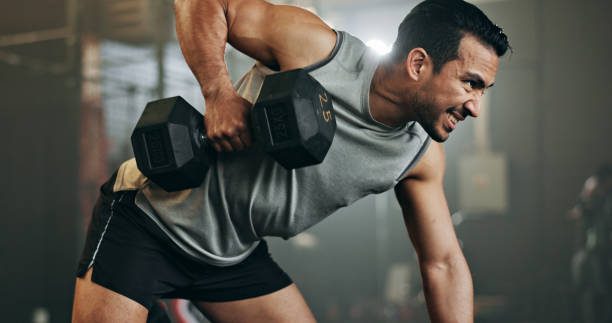
A Competitive Edge
As athletes became more competitive, they and their coaches have realized that strength training could give them a competitive edge. Besides leveraging it for improvement and consistency in performance, there are several other benefits that outweigh any risks associated with strength training.
Likely the most important benefit of regular strength training is that it actually reduces the risk of injury. Strength or resistance training creates changes within the body structure. An athlete’s bones, muscles, ligaments, and tendons become stronger over time. They have better ability to absorb the force caused by blunt contact, falls or awkward movements.
Power and Force
When athletes incorporate strength training into their sport-specific training, they increase both their power and force, often referred to as explosive strength.
According to a 2021 study, “More power generated in less time equals more explosivity, quicker and efficient movements.”
Essentially, many sports involve creating and controlling force via powerful movements. A linebacker needs enough force to tackle the opposing player, a golfer needs to control his swing to direct the ball toward the pin, while and a baseball pitcher needs to throw a fast strike right over home plate.
Strength training provides the ability to absorb and produce force, reduce potential injury, recover more quickly, and respond with increased explosive strength.
Body Composition & Neuromuscular Activation
Two additional areas of strength training that can improve sports performance are a solid body composition and faster neuromuscular activation. Incorporating resistance training is critical to have the proper balance of lean-to-fat mass and body composition.
A 2021 study suggested “An appropriate amount of lean body mass contributes to increased agility, quickness, and power, while reduced nonessential body fat improves cardiovascular and muscular endurance.”
The study went on to explain that neuromuscular activation “is the process by which the brain sends signals to the muscle to recruit muscle fiber and activation patterns to perform a certain movement.”
The muscle reacts and responds back to the brain creating a circle. Through repetition the body becomes more efficient with the practiced movements. Muscle memory improves communication and the coordination between multiple muscle groups. The practiced brain allows an athlete to respond quicker, be more efficient, and ultimately improve their performance.
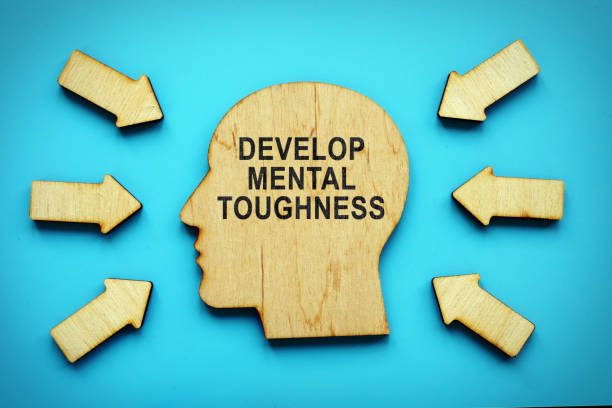
Beyond Physical Training
While the benefits of strength training are significant, it’s important to emphasize it is not a substitute for sport-specific training. However, even these two training techniques will still not make the best athlete.
Another critical component is an athlete’s mental toughness and the associated mastery of critical skills. Not being mentally prepared to deal with high stress situations, making mistakes, not believing in themselves, and not being present “in the moment” are several factors that can negatively affect an athlete’s performance.
Training the Mind
The mind is one of the most powerful tools at our disposal. A weak and untrained mind may hinder an athlete’s level of success regardless of how physically strong they may be. However, athletes who effectively use their minds will be tougher and have more success than those who do not. Athletes need to cultivate and train their mind so it can support and compliment the level of physical skills they have attained.
Characteristics of Mental Toughness
First, having an unshakable self-belief is critical. Essentially, this means being fully confident and having no doubt in your abilities.
While most people have doubts about their abilities, “the top performers (performers that are the most mentally tough) have doubts less often” according to a recent 2022 study.
Rebounding from Setbacks
Another attribute is mentally tough athletes rebound from setbacks more quickly. They do not dwell on past mistakes or errors. They are quick to bounce back from such situations as they see them as speed bumps along their path and not failures.
Most mentally tough athletes learn from the setbacks and use them as opportunities to become even stronger. They also tend to do this without passing judgment on their own self-worth.
Consistency
Another important attribute of mental toughness is consistency. An athlete who stands out at being mentally tough does so day in and day out. They are consistent with their physical and emotional actions.
A 2022 study stated that “Mentally tough athletes are more consistent than others. They don’t miss workouts. They don’t miss assignments. They always have their teammates backs.”
Presence
A final critical component of a mentally tough athlete is “presence.” Being truly present is when an athlete is able to block out all the noise, place 100% focus on their game and make plays.
Although this concept of “presence” may be simple for trained athletes, it may be difficult to achieve all the time. Personal situations, a crowd at a game, or something as uncontrollable as poor weather can easily be distracting.
Tips to Develop Mental Toughness
There are several tips that, if combined with these attributes and critical components, could aid in developing mental toughness.
Physical Self-Care
The first tip is that athletes take care of themselves physically.
According to a 2022 article, “The best thing you can do for your mental toughness is go get good sleep, eat well, and exercise.”
It may seem strange that physical health will aid in mental toughness, but the article continued, “the reality is that your mind and your body are dependent upon each other. And without physical health, mental toughness is much more difficult.”
Thus, it is suggested that practicing a healthy lifestyle is critical.
Positive Self-Talk
A second tip is to practice positive self-talk even when the game or match is not going well.
In situations like this remaining positive is critical. It may be very difficult, but an athlete should practice recognizing negative self-talk traps and immediately reframe them into positive self-talk.
They should focus on what they are doing well and accepting of the areas for improvement.
Know Your “Why”
A third and final tip is to know your reasons “why” you are performing. Your why may be to prove someone wrong, to earn income to make a living, or to simply play a game you love.
A 2022 article stated, “But it needs to run deep. Without a “why,” you’ll never have the internal motivation to develop true mental toughness; you’ll have an easier time folding when the going gets tough.”
So, What Drive Athlete’s Passion
An athlete’s passion is often a key driver of the dedication necessary for their specific sport training. However, it is not the only necessary element.
Successful elite athletes need additional training, both physically and mentally, to truly excel. Strength training is important for all athletes to improve performance and stay healthy. It is absolutely necessary for specialized athletes to attain peak performance.
Becoming mentally tough and training an athlete’s brain to be present and quickly adapt to negative situations is essential. Adding the key components of strength training and mental toughness with sport-specific training can lead to extremely successful athletes.
References
Iliades, C., Bedosky, L., Chai, C., Sullivan, K., Asp, K., Byrne, C., & Millard, E. (n.d.). The benefits of strength and weight training. EverydayHealth.com. Retrieved July 22, 2022, from https://www.everydayhealth.com/fitness/add-strength-training-to-your-workout.aspx
Admin. (2021, December 1). 4 benefits of strength training for sports performance. Kairos. Retrieved July 22, 2022, from https://kairostech.io/the-4-benefits-of-strength-training-for-sports-performance/
What is mental toughness? Mental Performance Trainer for Professional Athletes. (n.d.). Retrieved July 23, 2022, from https://www.donovanmentalperformance.com/what-is-mental-toughness
5 tips to mental toughness in sports. Mental Performance Trainer for Professional Athletes. (n.d.). Retrieved July 23, 2022, from https://www.donovanmentalperformance.com/5-tips-to-mental-toughness-in-sports






